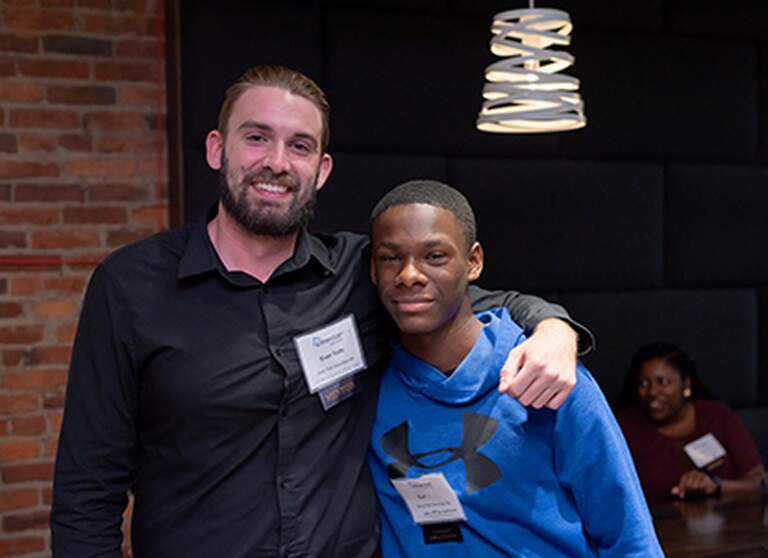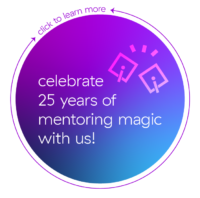While iMentor fosters connections between students and mentors in their community, it’s the willing student and the enthusiastic mentor who take that important first step. Staying connected during the COVID-19 pandemic era is vital, and Baltimore pair Evan Todtz and Earl prove this to be true. In the initial weeks after the lockdown, contact was difficult, but Earl was able to reach out and the two have been trying to maintain regular conversation and weekly check-ins as they navigate this crisis together.
Urban Designer Evan Todtz knew he wanted to contribute to his newly adopted community in Baltimore, but he wasn’t sure what was the best fit for him.
“It's very difficult to find an organization that aligns with my worldview and my perspective on everything from race to education to economics, politics, and everything else,” he said.
But the native Midwesterner, who grew up outside of Chicago, was determined to, as he put it, “breach the walls” of a city he felt had too clearly defined boundaries between race and class.
Todtz’s architecture firm had begun building relationships with local schools, and through those connections he heard about the newly launched iMentor program with the Baltimore Design School.
“After meeting with the [iMentor] leaders and seeing how they presented themselves,” he recalled, “hearing their personal narratives and how they were tied to Baltimore City, how they were tied to these struggles through not only their identities, but also through their professional lives—that passion was enough to convince me to take the risk.”
So he eagerly made the commitment and was paired with Earl, a junior at the Design School. Todtz was immediately impressed with his mentee, “a thoughtful kid,” as he termed it, with “a lot going on inside his head.”
His greatest challenge, however, was getting his mentee to communicate. “My biggest obstacle was getting him to talk and articulate what he was thinking,” said Todtz.
One of the first projects they worked on together was drafting Earl’s resume. Earl had expressed interest in finding a summer job and asked his mentor to help him put together a resume. Todtz seized that as an opportunity to get to know Earl a bit better.
“As any individual probably knows, once you put pen to paper, you've actually done more than what you realize,” said Todtz. Through the exercise, he got to learn more about Earl’s background and his strong work ethic. His mentee had spent time working in a mechanical shop. Earl also assisted his grandfather with his landscaping business and did landscaping jobs for his neighbors in Baltimore.
Todtz helped Earl frame his work in a way that potential employers would find appealing and, along the way, helped his mentee see his background and experiences in a new light.
“I think that he hadn't really thought about how involved he was in some of those things,” said Todtz.
The resume-writing exercise, which allowed Todtz to gain a clearer picture of who his mentee is, is helping the pair shape goals for their relationship. They have begun to talk about disciplines Earl might be interested in as he moves towards college. “He's talking about set design, or being on the opposite side of the camera,” noted Todtz, “and other types of video editing or creative direction around film.”
The pair have even worked in time to visit the American Visionary Art Museum in Baltimore after Earl expressed interest.
Todtz is convinced these icebreakers are giving their mentoring relationship the terra firma it will need to be successful. And even though his mentee is the quiet type, Todtz has been hearing around the way that his efforts to connect with Earl are yielding results.
“When I was in Thailand over winter, I brought him back a little stuffed animal
and, of course, it's super silly, because he’s a high school kid and I'm bringing him a stuffed animal” recalled Todtz. “And then I heard like two weeks later that people were saying, ‘yeah, he showed me this stuffed animal that you got him.’”
“He doesn't really show his cards, but it’s in moments like that I realize this means more to him than he lets on. I think it's very slow in coming, but I think we're starting to see some of those walls break down.”
We believe connections can affirm, support, and uplift. Mentor a student who will thrive with your support. Apply to become a mentor today.

